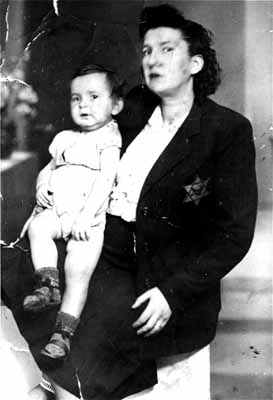Free Republic University, Department of History presents
World War II Plus 70 Years: Seminar and Discussion Forum First session: September 1, 2009. Last date to add: September 2, 2015.
Reading assignment:
New York Times articles delivered daily to students on the 70th anniversary of original publication date. (Previously posted articles can be found by searching on keyword “realtime” Or view
Homer’s posting history .)
To add this class to or drop it from your schedule notify Admissions and Records (Attn: Homer_J_Simpson) by freepmail. Those on the Realtime +/- 70 Years ping list are automatically enrolled. Course description, prerequisites and tuition information is available at the bottom of Homer’s profile. Also visit our
general discussion thread
To: Homer_J_Simpson
Selections from West Point Atlas for the Second World War Southwest Russia, 1942: German Summer Offensive, Operations, 7 May-23 July 1942
The Far East and the Pacific, 1941: Status of Forces and Allied Theater Boundaries, 2 July 1942
India-Burma, 1942: Allied Lines of Communication, 1942-194
2 posted on
07/16/2012 4:22:48 AM PDT by
Homer_J_Simpson
("Every nation has the government that it deserves." - Joseph de Maistre (1753-1821))
To: Homer_J_Simpson
Excellent
Q&A on CSPAN last night:
"Info: Our guest is military historian and author Antony Beevor. He discusses his newly released historical narrative, “The Second World War.” Beevor talks about the origins of the conflict spanning from before Hitler’s invasion of Poland to the aftermath of the war and its global impact on the major powers of the day. He describes Adolf Hitler’s dark and chaotic final days, including his marriage to Eva Braun and the couple’s subsequent suicide. He details the time and circumstances of the start of World War II for each of the participating countries, and he discusses actions taken by U.S. General Douglas MacArthur to suppress information at the Tokyo War Crimes Tribunal in 1946. He relates how he went about researching and assembling the volume of information he used to write the book. He describes his writing style and the barn he converted to a library in England to research and write the book."
""Brian Lamb: I’m trying to find the quote, of course I can’t fast enough, but there was a quote in here that people might be surprised about and that would be where you quote Teddy White, who was such a prominent figure in this country in the ’60s, when he wrote about the elections.
BEEVOR: Yes.
LAMB: Buying the Mao as a successor to Chiang Kai-shek as being a better deal.
BEEVOR: Yes. I’m afraid the war’s, say a lot of, shall we say New Deal idealism and I think that certainly more and more historians now are accepting that in fact Chiang Kai-shek has had rather a bad deal in history. He had an impossible situation. Yes, there was a lot of corruption within his own organization and all the rest of it, but when you see what Mao did later; the witch hunts of any opponent, the killings, the humiliation and destruction of almost anybody who might be slightly dubious, let alone oppose Mao’s personal command.
I mean it wasn’t a question of being anti-communist; it was a question of unless you absolutely bowed down to Mao as a – as a god you know you were regarded as an enemy. And this was madness, frankly. But it was terrifying that so many people were able to bow – buy the story which the Communists were – the Chinese Communists were putting out at the time; that they were the ones fighting the Japanese and the Nationalists were doing nothing.
This is totally untrue. Mao was very careful and was giving orders the whole time to his troops. You know don’t take on the Japanese; we need to keep our weapons and our ammunition ready to destroy the Nationalists in the civil war that will follow – inevitably, which will follow the Second World War.""
6 posted on
07/16/2012 5:56:51 AM PDT by
iowamark
To: Homer_J_Simpson
July 16, 1942:
- "La Grande Rafle ("The Big Sweep") commences in Paris, as the German and Austrian Jews living in the city, about 13,000 total, are rounded up; See July 19, 1942. "

"The treatment of French Jews at the hands of the Nazis offers a poignant reminder of the fragile nature of democracy.
Though French Jews were emancipated in 1790 and well integrated into the fabric of French society on the eve of World War II, their fate was altered dramatically in 1942.
"Beginning in the summer Jews in France were rounded up and deported to the East, where they were executed.
The roundups that began on July 16, 1942, targeted mostly stateless and foreign-born Jews, though British and American Jews were exempt from the operation.
Those who were caught in the first wave were interned in the Paris sports arena known as the Vélodrome d'Hiver.
"With 7000 people packed into the arena, a facility that lacked food, water, and sanitary facilities, the conditions were horrible.
Internees were confined for several days before being deported.
From the Vélodrome d'Hiver, Jews were deported to Drancy (a camp in the suburbs of Paris) or other temporary internment centers before being shipped to Auschwitz.
"In all, at least 77,000 Jews from France were murdered during the Holocaust, including Henri Sznajderman and his mother (both pictured).
Most died at Auschwitz, while others were killed at Majdanek and Sobibór or while in detention.''
11 posted on
07/16/2012 2:23:51 PM PDT by
BroJoeK
(a little historical perspective....)
FreeRepublic.com is powered by software copyright 2000-2008 John Robinson